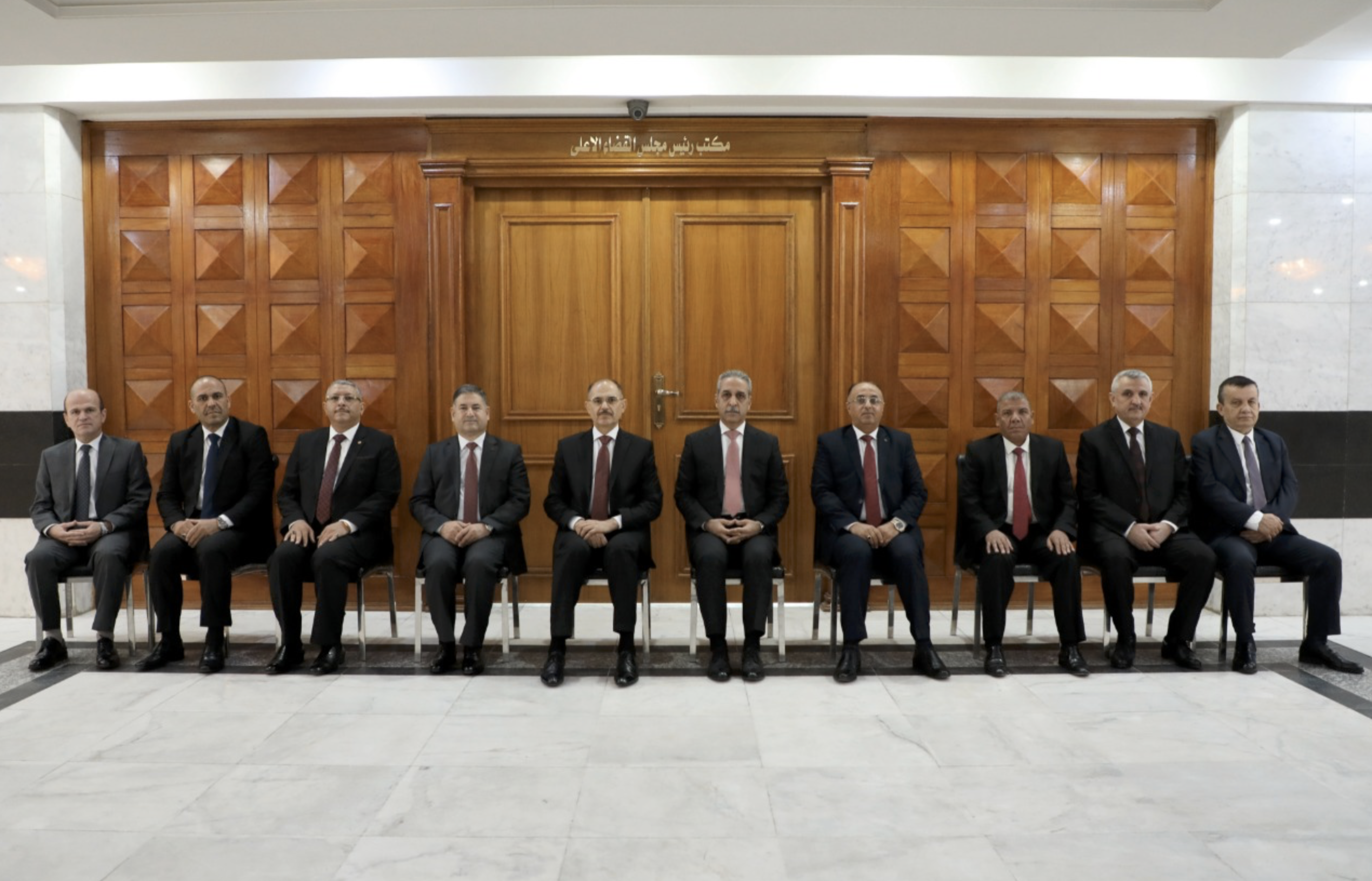Judge Dr. Abdul Rahman Suleiman Zebari, a respected figure within the Federal Supreme Court of Iraq, has submitted his resignation letter. In this letter, he expresses his deep concerns regarding the court's departure from the principles of federalism as delineated in the Federal Constitution. With an extensive background in constitutional law and three decades of judicial experience, Judge Zebari has consistently demonstrated his dedication to safeguarding the rights and privileges of all citizens, with particular attention to those of the Kurdistan Region.
His resignation serves as a stark reminder of the politicization of Iraq's judicial system and the tendency of authorities in Baghdad to undermine federalism and the Iraqi constitution.
The following statement is his resignation:

Dear distinguished Heads of Federal Authorities,
Distinguished Heads of Kurdistan Region Authorities,
Esteemed Citizens of Iraq, particularly in the Kurdistan Region,
May the peace, blessings, and mercy of God be upon you…
Nearly three years ago, I began my tenure as a judge and founding member of the Federal Supreme Court of Iraq. Holding a doctoral degree in constitutional law – with a specific academic focus reflected in my doctoral thesis titled Judicial Authority in the Federal System - A Comparative Study – and 30 years of service in the judiciary, I have diligently fulfilled my role as a representative of the Kurdistan Region in accordance with Article 3(II) of Federal Supreme Court Law No. 30 of 2005, as amended by Article 1 of Law No. 25 of 2021, known as the First Amendment to the Federal Supreme Court Law, which introduced the provision for “regional representation.”
Throughout my service in the court, I have utilized my professional and academic expertise to consolidate the components of the democratic system in Iraq. A primary objective of mine has been to contribute to the consolidation and safeguarding of the foundations of the federal system. Federalism is fundamentally rooted in the equitable distribution of power between federal institutions at all levels, as well as the institutions and authorities of the Kurdistan Region.
It is noteworthy that the Kurdistan Region stands as the sole region formed and constitutionally recognized since the inception of the 2005 Constitution of the Republic of Iraq (hereafter ‘the Federal Constitution’). Indeed, Kurdistan existed even before the Federal Constitution came into effect, serving as a testament to the enduring struggle, sacrifices, and tragedies of the people in the region, including their uprising in 1991.

It’s widely acknowledged that the Federal Constitution serves as the social contract and a politically sacred document upon which the new Iraq was established following the overthrow of the previous authoritarian regime. All components of the Iraqi populace participated in its drafting and subsequent approval, recognizing it as embodying the essential rights and entitlements of all constituents. Adherence to the provisions and principles of this constitution is deemed vital for ensuring Iraq’s unity as a federal state, as explicitly stated in the preamble of the Federal Constitution.
Personally, I have endeavoured to be the most effective representative and advocate for the rights and entitlements of all constituents of Iraq, as well as the institutions of the federal state in general, and the constitutional rights of the Kurdistan Region in particular, given my role as its representative, as stipulated in the aforementioned article.
However, after nearly three years in this position and observing the successive decisions of the Federal Supreme Court in its new composition, I have arrived at the personal realization that my presence and continuity as a judge in the court do not fully serve the intended purpose of this role, which is to contribute to upholding the principles and foundations outlined in the Federal Constitution.

Specifically, I find myself in a position where my efforts and professional expertise have become inadequate in achieving the objective of safeguarding the interests of the Kurdistan Region as a constitutionally recognized entity, as delineated in numerous articles of the Federal Constitution. Perhaps the most significant factors contributing to this realization include the following:
1. Through my service and observation, I have noticed a trend in successive court decisions towards a gradual regression to the principles of a centralized system of governance. This trend involves a gradual departure from the foundational principles of the federal system, as outlined in Article 110 of the Federal Constitution. Specifically, there has been an expansion in the scope of the exclusive powers granted to federal authorities at the expense of the powers allocated to regions or governorates not organized into a region or to the joint powers mentioned in subsequent articles.
2. Constitutional courts in all political systems that adopt the federal structure serve as a means for protecting and consolidating this system. They ensure the balance between federal authorities and the authorities of states or regions, preventing any level of government from overstepping its powers. The term “Federal” in the court’s name originally relates to the federal system explicitly endorsed by the Constitution, particularly in Articles 1 and 116. Furthermore, it is logical that the Constitutional Court, in any country, prioritizes safeguarding the authorities of regions or states over federal authorities. This prioritization stems from the fact that federal authorities, due to their nature and powers, naturally hold a stronger position than regional authorities. However, as mentioned above, I have observed the opposite trend.
3. The Federal Constitution is considered a rigid constitution, carefully crafted by its constitutional legislators, who established complex procedures for its amendment. This was done to safeguard the agreed-upon constitutional principles and the rights of all parties, components, and levels of government. However, what I have observed in the orientations and decisions of the Federal Supreme Court and its interpretations of the Federal Constitution in many instances is concerning. There seems to be a tendency towards broad interpretations that deviate from the context, potentially reaching the level of constitutional amendment. Such actions violate numerous constitutional principles, including the federal principle and the principle of the separation of powers. Consequently, this trend has led to the erosion of the Constitution’s significance and meaning.
4. Given the absence of new legislation for the Federal Supreme Court – as required by Article 92 of the Constitution – the provisions of the amended Federal Supreme Court Law No. 30 of 2005, enacted before the Federal Constitution came into force, remain in effect. Those provisions concern the court’s composition and voting mechanism through the issuance of rulings and decisions, most of which are made by majority vote. Consequently, the representation of the Kurdistan Region constituting only two judges among the total of nine court members, lacks the numerical significance to prevent decisions and rulings perceived as violating the Region’s rights and constitutional entity. This renders their representation of the Region practically ineffective. At most, they can express dissenting opinions. Our firm establishment of constitutional and legal opposition to numerous rulings and decisions, as mentioned earlier, has had little practical impact since decisions can be made by majority rather than consensus.
For all the aforementioned reasons and driven by my sense of responsibility towards the people of the Kurdistan Region in all its components, as well as its institutions and constitutional entity, I hereby declare my resignation from membership in the Federal Supreme Court. The circumstances I have outlined have rendered it impossible to fulfil the objectives for which I assumed this position and to influence the court’s direction as previously described.

